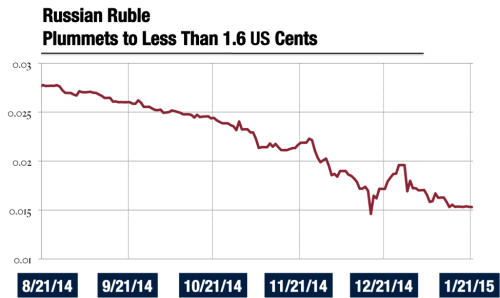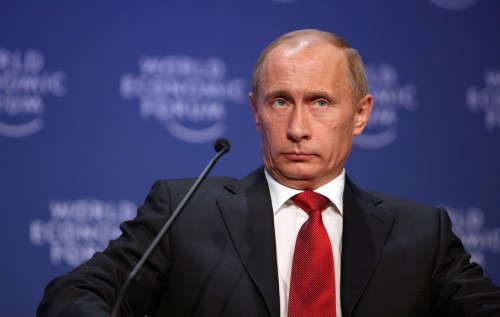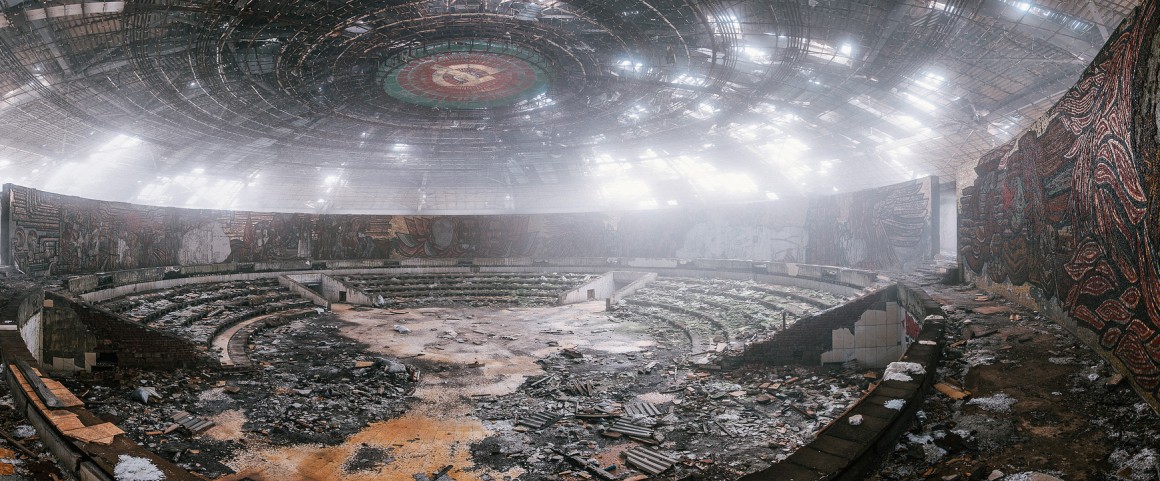The fall of the Berlin wall and subsequent collapse of the Soviet Union shocked the world as the 70-year communist regime fell apart and its anemic economy floundered. Since 1989 Russia has struggled to recapture its former glory, most recently under the leadership of President Vladimir Putin. Putin is not a man of subtlety. Since his meteoric rise to power in 1999, he has made no secret of his plan to restore Russia to its former status as a world superpower – economically, politically, and militarily. Putin resurrected an expansionist policy, signaling Russia’s return as a regional power with his invasion of Georgia in 2008. Despite the recent cease fire agreement with Kiev, the annexation of Crimea, and Russia’s indirect support of separatist rebels in Ukraine indicate that there can be no doubt of Moscow’s intentions. While there may be different schools of thought on the political or historic legitimacy of Russia’s actions, it is undeniable that Russia and Putin face one insurmountable obstacle: these actions are economically unsustainable and Putin’s dream of reclaiming the USSR’s former glory is unachievable.
Russia’s economy relies heavily on oil and gas exports; rising oil prices during the last decade helped the Russian economy grow rapidly. However, relying on volatile oil prices is a poor model for long-term economic growth. A combination of falling global oil prices, rising inflation rates, and Western sanctions have all contributed towards an alarming drop in the price of the Russian ruble, which halved in value in 2014. The Russian administration is desperately trying to reverse this trend by raising interest rates. The Russian central bank recently instituted a policy to raise the interest rate from 10.5 percent to 17 percent, and the Russian government has issued billions of dollars in bonds. Despite these efforts, the downward economic spiral continues, as the S&P recently downgraded Russia’s credit rating to junk. The Russian ruble has plummeted to a value of less than 1.6 US cents.

Putin’s inelegant model of governance is also heavily centralized. In 2004, he announced plans to “radically restructure” the entire political system, resulting in the sclerotic bureaucratic model that exists today. Almost every decision goes through Moscow, and this tightened grip means that virtually everything has to be approved by Putin or his close advisors. Putin need only take a close look at Russia’s former communist experience to see this model of governance is untenable, especially as the scope of territory continues to increase under Putin’s expansionist policies. Complete centralization of power may have its advantages as a means of keeping political control, but in a country as large and diverse as Russia, it is increasingly evident that it is inefficient and unsustainable in the long-term.
Without a strong economy, Putin’s vision of a reinvigorated Russian political hegemony will falter as well.
Despite this, Putin is still very popular within Russia. Recently, his approval ratings soared dramatically earlier in 2014 from an all-time low of 52% to over 80% in November. Russians seem to like his bluster and machismo. Be that as it may, Putin faces staggering obstacles as his time in power has now lasted almost 15 years. Low oil prices are having a devastating effect and as the Russian economy continues to stagnate, untimely Western sanctions are beginning to take their toll. Sooner or later, the average Russian is going to notice that all is not well.

As Putin’s administration frantically attempts to plug holes in the sinking ship, it is becoming increasingly evident that Russia’s economic policies are self-destructive. Without a strong economy, Putin’s vision of a reinvigorated Russian political hegemony will falter as well. Putin has shown remarkable resilience in the past, but there now exists a major divide between his ambition and the financial attainability of his actions. What happens next will perhaps be the defining moment for Russia’s and Putin’s future, for better or for worse.
Feature Photo: Flickr/(Michael Kötter)
Case Boeshaar is a McCourt School Graduate from the class of 2016 at Georgetown University. He currently works as an Assistant Program Officer for Middle East programs at the National Endowment for Democracy.

End of Socialism
1989 was the fall of “Real Socialism” (more known as Communism), 2011 was the fall of “Arab Socialism” Certainly if 1989 was the fall of “Real Socialism” (more known as Communism), 2011 was the fall of “Arab Socialism”.
Other Arab Socialists regimes like Saddam’s Iraq, Nimeiri’s Sudan, or former South Yemen already went down in one or another way. There are still two “Arab Socialists regimes”: the Mauritania of Mohamed Ould Abdel Aziz & the Algeria of Bouteflika.
based putin will make russia stronk
Nice meme
this meme is dank yo